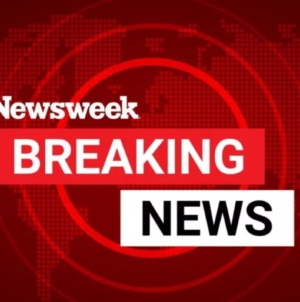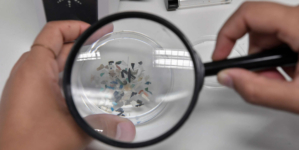-
Holiday crackdown nets over 100 retail theft suspects in California - 11 mins ago
-
Fox News Hosts Sean Hannity and Ainsley Earhardt Announce Engagement - 22 mins ago
-
2024-25 College Football Playoff: Bracket, schedule, rankings, scores, more - 32 mins ago
-
Houston woman allegedly zip-tied girl, taped her mouth, and locked her in cage next to Christmas tree - 59 mins ago
-
NY Governor Signs Law That Charges Companies for Greenhouse Gas Emissions - about 1 hour ago
-
Dianna Russini weighs in on the fit between Pete Carroll and Caleb WIlliams | The Herd - about 1 hour ago
-
Severed leg washes ashore in Palos Verdes Peninsula, prompting search - 2 hours ago
-
Man Arrested in Fatal Shooting of 7-Year-Old Boy on Tribal Reservation - 2 hours ago
-
Florida pizza driver accused of stabbing pregnant customer because she wasn’t happy with the tip - 2 hours ago
-
CFB Bowl Games Best Bets: Iowa State vs. Miami, Penn State vs. Boise State | Bear Bets - 2 hours ago
Orbán: “The liberal world order has come to an end – we must chart our own course”
Drawing from Hungary’s rich history as an animal-keeping nation, Prime Minister Orbán emphasized the vital role of veterinary medicine in the country’s identity and survival. “The life of our ancestors depended on their ability to understand and care for animals,” he remarked, referencing Hungary’s historical relationship with animals and its symbolic ties, such as the legend of the “Miraculous Hind.” This deep-seated tradition, combined with modern advances, has positioned Hungary’s veterinary sciences among the best globally.
The University of Veterinary Medicine, now ranked among the top 150 in the world, serves as a testament to Hungary’s enduring commitment to excellence. “What happens here exemplifies how we can elevate our thousand-year-old heritage to world-class standards,” the prime minister stated. With newly unveiled state-of-the-art laboratories and facilities, the institution aims to break into the global top 50. Orbán encouraged those involved, saying, “Please do not settle for less – and you must not settle for less!”
The inauguration ceremony also marked a broader shift in Hungary’s higher education strategy. Highlighting a dramatic increase in funding, Orbán pointed out that Hungary invests the highest percentage of GDP in higher education within the European Union. Over the past decade, research and development funding has tripled, leading to significant strides in academic rankings. “Five years ago, only seven Hungarian universities ranked in the global top 5%; today, there are twelve,” he noted.
The prime minister linked these successes to Hungary’s ability to maintain sovereignty in education and research, a theme underscored by the recently launched Pannonia Scholarship Program. This initiative, he explained, ensures that Hungary remains competitive without relying on external support. “We do not depend on anyone else’s money,” he said, reaffirming Hungary’s independence in creating fruitful international collaborations.
Looking ahead, Orbán articulated a vision for Hungary’s future that embraces change while rejecting conformity. “The liberal world order has ended,” he declared, urging nations to maximize their unique strengths rather than follow predefined paths. He identified the integration of Hungary’s historical, cultural, and economic advantages as critical to securing a prominent role on the global stage.
Hungarian universities, including the University of Veterinary Medicine, are positioned to benefit from this strategy. “Our goal is not merely to adapt but to thrive by creating new models and connections,” the prime minister said, adding that the development of higher education institutions plays a key role in this effort.
While celebrating the university’s achievements, Orbán announced ambitious plans for its continued expansion. Looking ahead to 2025, he expressed hope for a return to economic growth and normalcy in Europe, which he anticipates will create the financial resources necessary for further investments in education.
“Let this institution remain a cornerstone of Hungarian veterinary medicine and a guiding light for our nation’s future,” he concluded, encapsulating a vision of progress rooted in both tradition and innovation.
Source link





















